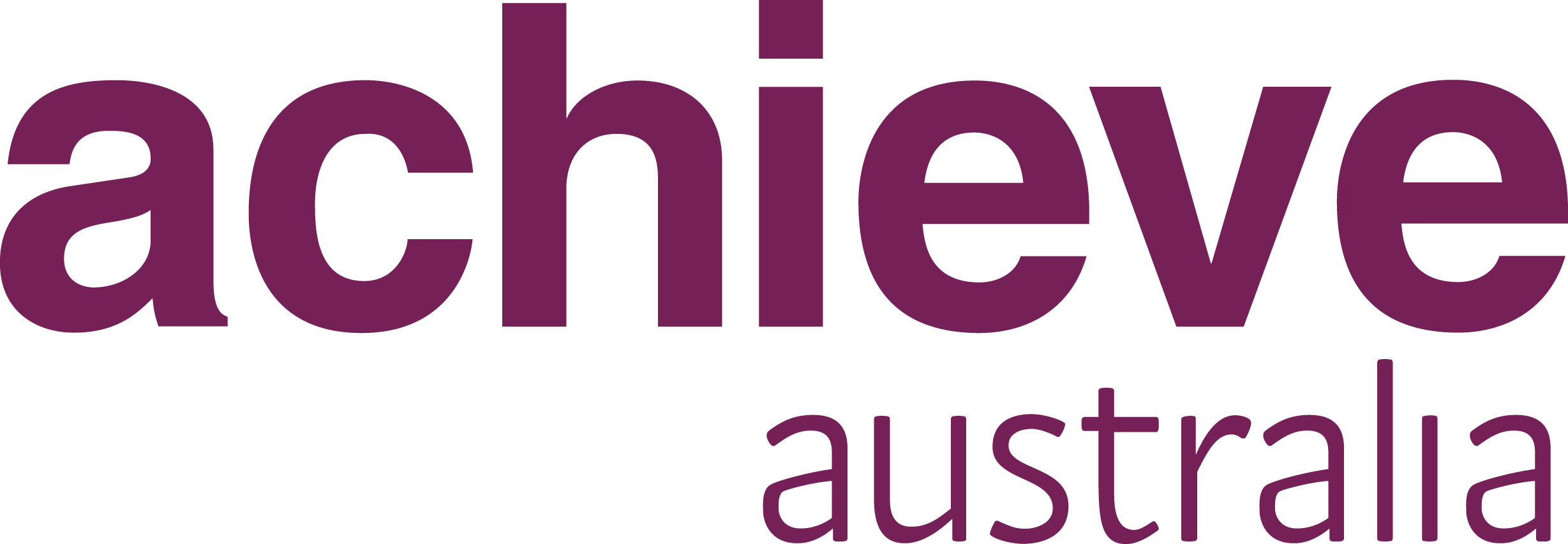22 July 2024
By Achieve Australia Writer and Researcher Fi Bridger
The National Disability Insurance Scheme Amendment (Getting the NDIS Back on Track No.1) Bill could soon become law. In this blog I look at some of the concerns raised by advocates plus a few of my own.
Before I dive in, let’s pause to focus on the great things happening in the NDIS space regarding advocacy. In the 2024 Budget, the Government announced a $40 million investment over 2 years in self-advocacy and peer support programs for people with a disability (PWD). The aim is to support PWD to engage in the community and advocate for themselves.
Minister for the NDIS, Bill Shorten said, “Peer support and self-advocacy organisations are central to supporting people with disability to feel connected within our community.”
It’s great the government continues to recognise self and systemic advocacy.
So what are advocates saying about the amendment bill?
Many say the “assessment tools” proposed are too vague. Autism Aspergers Advocacy Australia points out that there is no single assessment tool available for many disabilities such as Autism Spectrum Disorder. “It is unknown whether a fair and equitable assessment tool exists or is even possible (especially for autistic Australians).”
The Disability Rights Advocacy Service (DRAS) is concerned about the ‘needs assessment’ and want more clarity on who will be conducting the needs assessment, their qualifications, how an assessment would be conducted and the opportunities for the NDIS participant to take part in the assessment.
Role of whistle blowers
The Human Rights Law Centre (HRLC) see a lack of protection for whistle blowers in the proposed legislation. HRLC say whistle blowers are important in upholding the financial sincerity intended under the new legislation.
“The NDIS Act reform cannot hope to sufficiently address the issues regarding visibility and regulation of all providers and workers and strengthen the regulatory response without providing greater protections to whistle blowers. The current outdated whistle blower protections under the NDIS Act are currently stifling the voices of would-be NDIS whistle blowers.”
Reasonable and necessary
Other advocates are concerned with the narrowness of “reasonable and necessary supports”. Women with Disability Australia and its counterparts in Victoria and the ACT are concerned about what they see as the inflexible nature of the new proposed supports.
“This takes a one-size-fits-all approach to funding periods which does not support a person’s autonomy, choice, or control over their NDIS plan – particularly if someone is self-managing their plan,” the groups state. “Further consultation with people with disabilities is needed to ensure that funding periods can be set that are suitable to a person’s situation.”
Upon listening to recent media reports, the average Australian might believe that every NDIS plan has a plethora of sex workers as part of it. The coverage on whether sex workers will be considered a ‘reasonable and necessary support’ drew a response from Minister Shorten.
"We will rule it out, yeah, we will rule it out. It's just not a sustainable proposition…The reality is I've got one or two examples I'm aware of that it's ever happened, ever. So, it's not what's happening in most of the scheme."
People with Disability Australia president Marayke Jonkers said this ban would mean the government is deciding who is allowed to have sex.
"While it's not for every NDIS participant, it has facilitated those supports for people to live an ordinary life, and sexual expression is part of an ordinary life and a human experience," Ms Jonkers said.
Savings now could cost more later
Disability Advocacy Network Australia has raised concerns about blanket bans on certain supports such as white goods.
“Controlling supports in this way may also direct people to use more expensive supports, like a support worker instead of a cheaper piece of technology that is a once-off payment like a robot vacuum device for someone with a physical disability,” the network states.
“A robot vacuum would likely be caught up in a broad definition of ‘white goods’ … and this could end up costing the scheme more over the longer-term.”
My view - I am the expert in my disability
My concerns relate to the risk of less choice and control for some people. As a person living with a disability, I want to have a voice over my life, to make decisions, and have agency and dignity like everyone else.
Being able to choose my own support workers, physical therapist, speech therapist, gym, OT therapist and psychologist is important to me as an adult.
I would love this legislation to recognise that the expert in my disability is me. After more than 30 years of therapy, I can quickly assess which therapists and workers can assist me in achieving my goals.
Explore more topics
- Accessibility
- inclusion
- Achieve Australia
- disability
- belonging
- Community
- Employment
- The Sewing Basket
- Advocacy
- disability employment
- Accessible
- My Life My Say
- Celebrating people we support
- NDIS
- 2022
- Meet our Achievers
- blog
- people with disability
- travel
- women with disability
- Art
- Australia
- COVID-19
- Disability services
- Good nutrition
- Guildford
- Health tips
- Mental wellbeing
- NDS
- Sharing milestones
- Sydney
- achievable
- assistance dogs
- depression
- disability communications
- disability inclusion
- election
- employee of the year
- intellectual disability
- motherhood
- pregnancy
- social inclusion
- support workers

